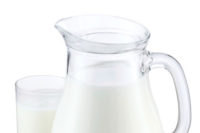Childhood Hunger on Cognitive Decline

"We didn't expect these results. We thought hunger was related to faster cognitive decline," said lead author Lisa Barnes, a cognitive neuropsychologist at Rush's Alzheimer's Disease Center. "We don't understand what they mean. The biological basis is not known. We know from animal literature that there is evidence that caloric deprivation increases life span. However, it's a big leap to human work.
"The take-home message is that early life experiences do matter and can affect life in old age."
The research was published in the December 11 issue of the American Academy of Neurology's journal Neurology.
The study examined 6,100 older people enrolled in the Chicago Health and Aging Project, which, among its efforts, studies risk factors for Alzheimer's disease. The group had a median age of 75.
They were interviewed, initially between 1993 and 1997, for up to 16 years, at three-year intervals. Some 62%of those studied were non-Hispanic African-American, and about 38% were non-Hispanic whites.
"It includes a high percentage of blacks and whites with a range of socioeconomic levels in both groups, which helps us to compare the two groups better," said Barnes, who is also an associate professor at Rush.
Participants were asked about childhood health; cognitive environment; financial circumstances, such as how often they went without enough food as children.
"Blacks reported overwhelmingly greater adversity in these areas" compared with whites, Barnes said. "It's possible that it represents a really resilient group of African-Americans, people who experience extreme adversity."
Barnes said she and her colleagues have more research to do in order to understand the findings.
Judy Dodd, adjunct assistant professor in clinical dietetics and nutrition at the University of Pittsburgh, called the study "a very interesting premise, and something worth looking at with more study."
"It reverses what we believe," Dodd said. "It opens a whole new area on cognitive decline and quality of diet."
Dodd said she has several follow-up questions.
"I want to know more about what they meant by 'hunger.' Not enough calories or not enough nutrients?" she said. "If the food was nutrient-rich, even though it was low-calorie, might that still have built that protective effect? I'm not criticizing the study in any way. It's preliminary and fascinating, and it opens up another door and is exciting. The point is quality of diet and looking at nutrition, as opposed to calories.
"It wouldn't surprise me if quality of diet is the real issue here. Obesity research might also go in that direction."
Looking for a reprint of this article?
From high-res PDFs to custom plaques, order your copy today!



